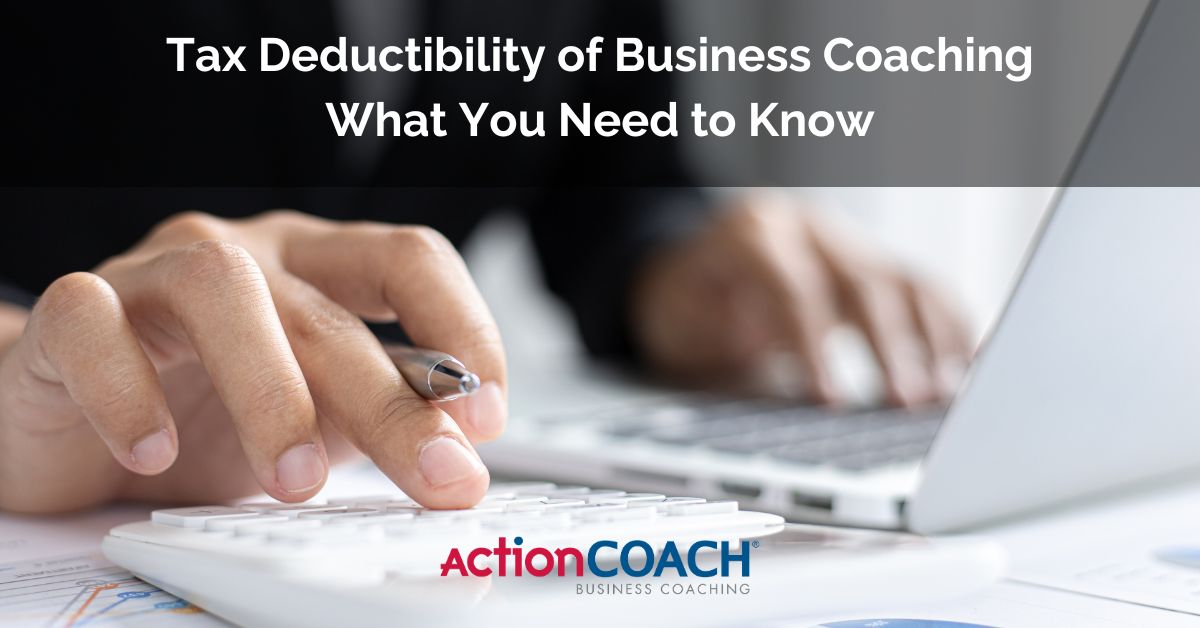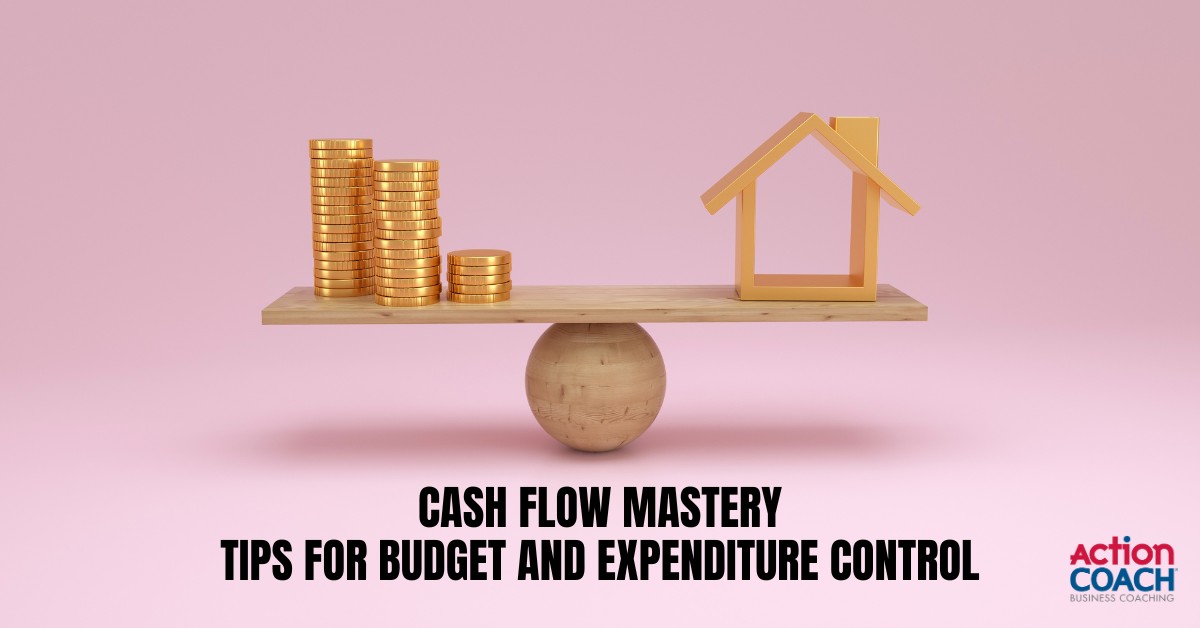Tax Deductibility of Business Coaching: What You Need to Know
Here’s a question we often get: is business coaching tax deductible? And can you reclaim any VAT you pay on coaching fees? To help answer these questions, we’ve put together a brief guide on how UK tax rules can apply to business coaching.
While we hope to give you a general idea of where you stand, this is no substitute for advice from a qualified accountant. Please consult a specialist before making any final decisions.
Understanding Tax Deductions
In very basic terms, tax deductions are business costs that you can subtract from your business’s gross income. This lowers the amount that HMRC will expect you to pay corporation tax on (or income tax if you’re a sole trader). You might also hear them called ‘tax write-offs’.
So, if your business made £80,000 for the year but you incurred £20,000 of tax deductible business expenses, you would only pay tax on £60,000.
The law distinguishes between revenue expenditures (everyday running costs for the business, like utilities) and capital expenditures (purchasing assets that benefit the business, like land or vehicles).
Many things can be classed as a revenue expense, including staff salaries, running costs, and professional services. In all cases, you need to be able to prove that an expense was necessary for the running of your business for it to be deductible.
HMRC states that no cost can be deducted “unless it is incurred wholly and exclusively for the purposes of the trade, profession or vocation.” If an expense benefits you as an individual but not the business, it doesn’t count as a deductible expense.
However, there are provisions for expenses that are a mixture of business and personal, such as a phone which you use for both business and personal matters, and we’ll go into more detail about that later.
If your business is VAT registered (if you charge VAT on the products or services you offer), it’s also possible to claim back the VAT you paid on these allowable expenses.
Is Business Coaching Tax Deductible for Business Owners?
So, is business coaching a tax deductible expense? The answer is a qualified “yes”.
Ryan Dempsey at Integro Accountants explains it like this:
“If you are paying for services that are purely for your business through improvement of your skills and/or enabling better networking, then yes, this counts as a company expense and as such can be claimed.”
There are complicating factors though. Business coaching could fit into a number of expense categories, all of which have their own guidelines and requirements.
It largely depends what style of coaching you’re receiving and the purpose behind it. For instance, our group coaching program could potentially be classed as “training and development” whereas receiving 1-to-1 coaching might be described as “consultancy” or “professional services”.
Let’s look at the guidelines surrounding “training and development” as an example. As a proprietor, you’re allowed to directly deduct training costs for yourself, providing that training is developing expertise you already have.
HMRC’s internal manual clarifies it like this: “Expenditure incurred by the proprietor of a business on training courses for themselves is revenue expenditure if the course merely updates existing expertise or knowledge.
Expenditure on a course which provides new expertise or knowledge is capital.” Additionally, you can’t deduct the cost of training that’s designed to help you set up a new business or move into a new area of business with your existing company.
So, to be directly deductible, the coaching would need to be interpreted as building on the skills and knowledge you already have for the benefit of your current business to fit into the first category.
If you’re unsure it’s questions of interpretation like this that make it so important to discuss the matter in detail with your accountant.
They’ll be able to advise you on which category the type of coaching you’re interested in would fall under and what the implications of that would be.
Business VS Personal Expenses
Another complicating factor is that business coaching can sometimes stray into coaching for you as an individual, blurring the lines between a business and personal expense.
As Ryan Dempsey explains:
“If you’re using a life coach and they are advising you on both your business and personal development, you need to attribute how much time is spent on the business side and only that portion of their fee can be claimed as tax deductible.”
What Ryan is referring to is the process of apportionment. This is where a portion of the coaching fees can be deducted, providing that portion was explicitly laid out for the sole purpose of benefiting the business.
HMRC’s manual clarifies that where “a definite part or proportion of an expense has been laid out or expended wholly and exclusively for the purposes of the trade, profession or vocation,” then that part only should be allowed as a legitimate expense.
Even this might not be as straightforward as it sounds though. After all, you might undergo business coaching purely for the good of your business but also receive some personal benefit from it (like a better work-life balance).
But that doesn’t necessarily mean it isn’t deductible as HMRC does allow for incidental benefits. The guidance states: “Where a taxpayer incurs an expense wholly and exclusively for the purposes of their trade, profession or vocation an incidental benefit may arise. Such an incidental benefit does not, of itself, mean that the expenditure is disallowed.”
So, providing the portion of your coaching fees you’re planning to deduct were specifically intended for the business’s benefit and not yours, you may still be able to deduct them, even if you gained some personal benefit.
However, if you paid that portion of the fees intending to benefit both professionally and personally, then technically that could be classed as a dual purpose and potentially prevent you from deducting the expense.
Investing in Business Coaching for Your Staff
You might also be thinking about investing in business coaching for members of your team, perhaps through enrolling them in a program like our “Future Leaders Academy“. Thankfully, this is more straightforward when it comes to tax deductibility.
That’s because you’re explicitly allowed to deduct any “work-related” training costs for your staff. HMRC defines work-related training costs as:
“any training course or other activity which is designed to impart, instil, improve or reinforce any knowledge, skills, or personal qualities which: are, or are likely to prove, useful to the employee when performing his/her duties or will qualify or better qualify the employee to undertake the employment.”
So, investing in coaching to help your employees develop their skills (in leadership, for instance) is a legitimate business expense. That’s even the case where the skills won’t be directly useful right away, as the HMRC guidance goes on to explain:
“This remains the case where the expenditure is on the development of an employee’s skills and attributes, which may not be directly related to his or her current job with the employer, for example training that would only become relevant if the trainee were successful in winning promotion.”
Going by this guidance, it’s safe to say that investing in business coaching for your staff would be an allowable expense and qualify as a tax deduction.
This would still be the case even if you were doing so with an eye on responsibilities they might have in the future, rather than focusing solely on their current role.
Conclusion
Business coaching can definitely qualify as a tax deductible expense, whether you’re engaging in it as a business owner or investing in it for your staff. That also means you can reclaim the VAT you pay on coaching fees, providing your business is VAT-registered.
However, all situations are unique and the guidance needs to be carefully interpreted. If you’re at all uncertain, we would advise you to double-check your particular situation with your accountant.
If you’re feeling more reassured about the tax deductibility of business coaching and would like to start the process, book a free 45-minute session with one of our coaches.
They’ll be able to discuss your needs with you and together you’ll be able to identify the best coaching option for you. That will give you and your accountant more information to work with when thinking about the tax implications.




